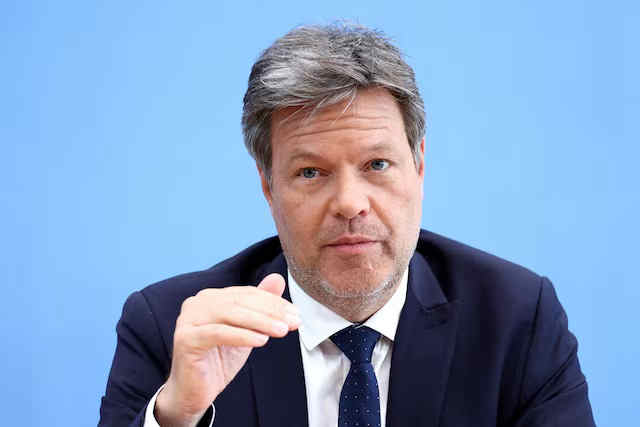
The German economy minister’s visit to China this week will be an opportunity for Europe’s biggest economy to seek consensus rather than confrontation, Chinese state media said, amid trade tensions with the European Union over electric vehicles.
Germany Economy Minister Robert Habeck will arrive in Beijing on Friday as the European Commission moves to place hefty tariffs on imports of Chinese-made electric vehicles, unleashing countermeasures by China and harsh criticism from Chinese leaders.
This week alone, Chinese automakers urged Beijing to hike tariffs on imported European gasoline-powered cars in retaliation for Brussels’ move.
The three-day visit is seen as an opportunity for Germany to seek consensus, some experts said, according to Chinese state-controlled tabloid Global Times.
“If Germany can resolve potential trade conflicts between China and the EU without confrontation, it could provide a new model for global economic order and governance, especially at a time when Europe is facing multiple conflicts,” an expert was quoted as saying by Global Times.
Habeck, who has personally spoken out against punitive tariffs as a last resort, had said “China is an indispensable partner for global challenges”.
Relations with China had become more complex but the world’s second-largest economy was an important partner in all fields, Chinese state media cited him as saying.
Immediately upon his arrival in Beijing, Habeck is expected to meet with ambassadors of several EU countries and then head into talks with Premier Li Qiang and other officials. He will also meet Industry Minister Jin Zhuanglong and Commerce Minister Wang Wentao before going to Shanghai and Hangzhou.
In an opinion piece, newspaper People’s Daily wrote that the EU is a key trading partner for China, and the close ties between China’s industrial chain for EVs and European manufacturers, particularly those in Germany, mean tariffs could have negative repercussions for both sides.
Negotiations with Chinese officials to cool bilateral tensions could also be seen as a litmus test as trade protectionist measures globally become a wider economic issue, it added.
